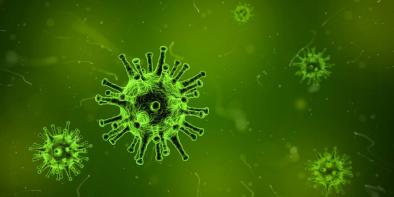Science Source
Airway epithelial anion secretion and barrier function following exposure to fungal aeroallergens: Role of oxidative stress
- States that aeroallergens produced by Alternaria alternata can elicit life-threatening exacerbations of asthma in patients sensitized to this fungus
- Investigates the effect of Alternaria on ion transport mechanisms underlying mucociliary clearance and airway epithelial barrier function in human airway epithelial cells
- Finds that:
- Apical exposure to Alternaria induced an increase in anion secretion that was inhibited by blockers of CFTR and Ca2+-activated Cl- channels
- Stimulation of anion secretion was dependent on Ca2+ uptake from the apical solution
- Alternaria exposure also produced an increase in reactive oxygen species (ROS) that was blocked by pretreatment with the oxidant scavenger glutathione (GSH)
- GSH and the NADPH oxidase inhibitor/complex 1 electron transport inhibitor diphenylene iodonium chloride (DPI) blocked ATP release and the increase in intracellular [Ca2+] evoked by Alternaria
- Alternaria also decreased transepithelial resistance and a portion of this affect was dependent on the increase in ROS
- However, the Alternaria-induced increase in unidirectional dextran (mw = 4000 Da) flux across the epithelium could not be accounted for by increased oxidative stress
- Results support the conclusion that oxidative stress induced by Alternaria was responsible for regulating Ca2+-dependent anion secretion and tight junction electrical resistance that would be expected to affect mucociliary clearance
Related Content
Science Source
| The Lancet - Planetary Health
Temperature-related changes in airborne allergenic pollen abundance and seasonality across the northern hemisphere: a retrospective data analysis
Lewis H Ziska, László Makra, Susan K Harry et al
Science Source
| Proceedings of the National Academy of Sciences
The Changing Risk and Burden of Wildfire in the US
Marshall, Burke, Anne Driscoll et al
Science Source
| Proceedings of the National Academy of Sciences
Anthropogenic climate change is worsening North American pollen seasons
William R. L. Anderegg, John T. Abatzoglou, Leander D. L. Anderegg et al
Headline

Dec 16, 2019 | Princeton University
Climate change could make RSV respiratory infection outbreaks less severe, more common


